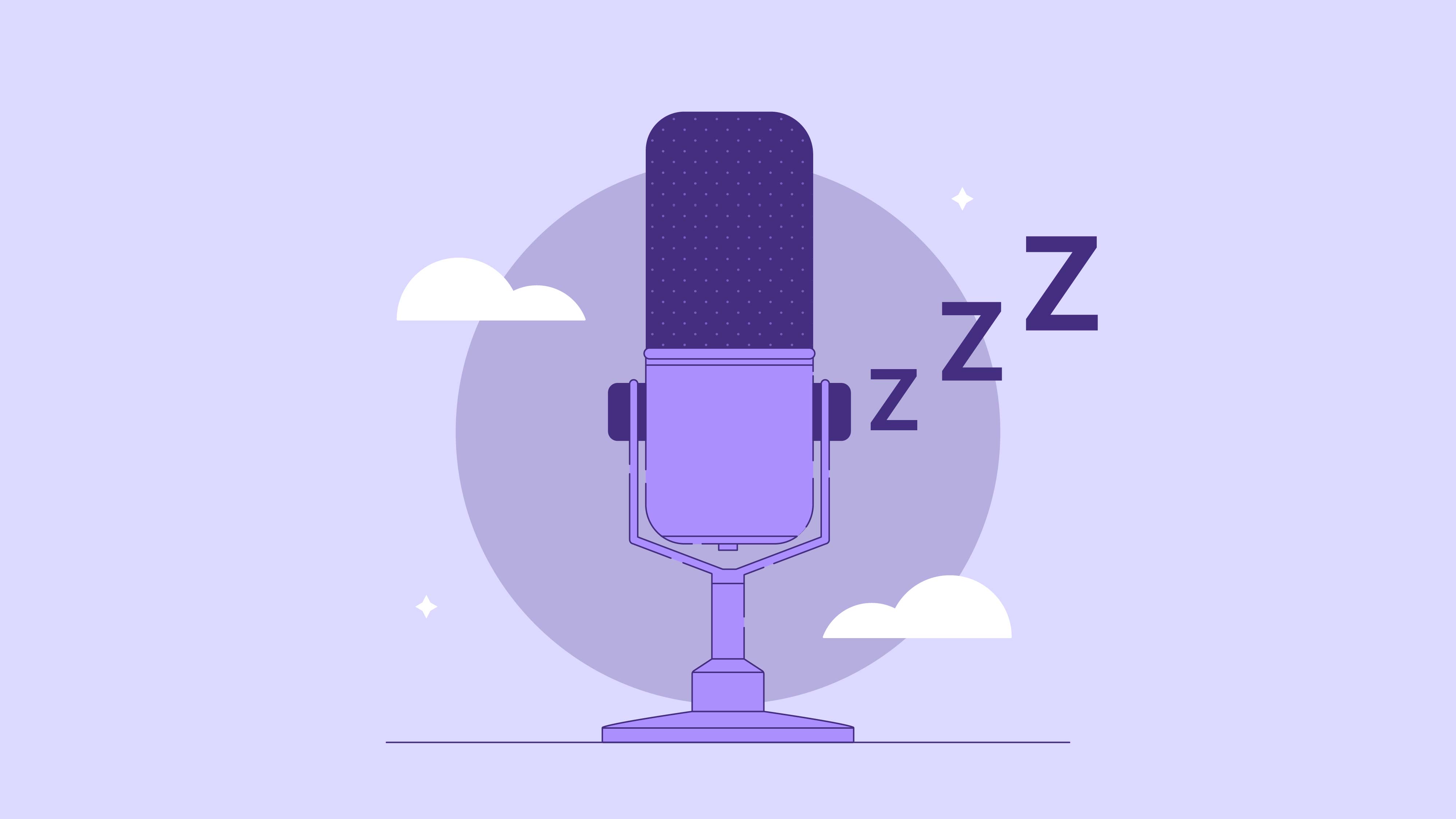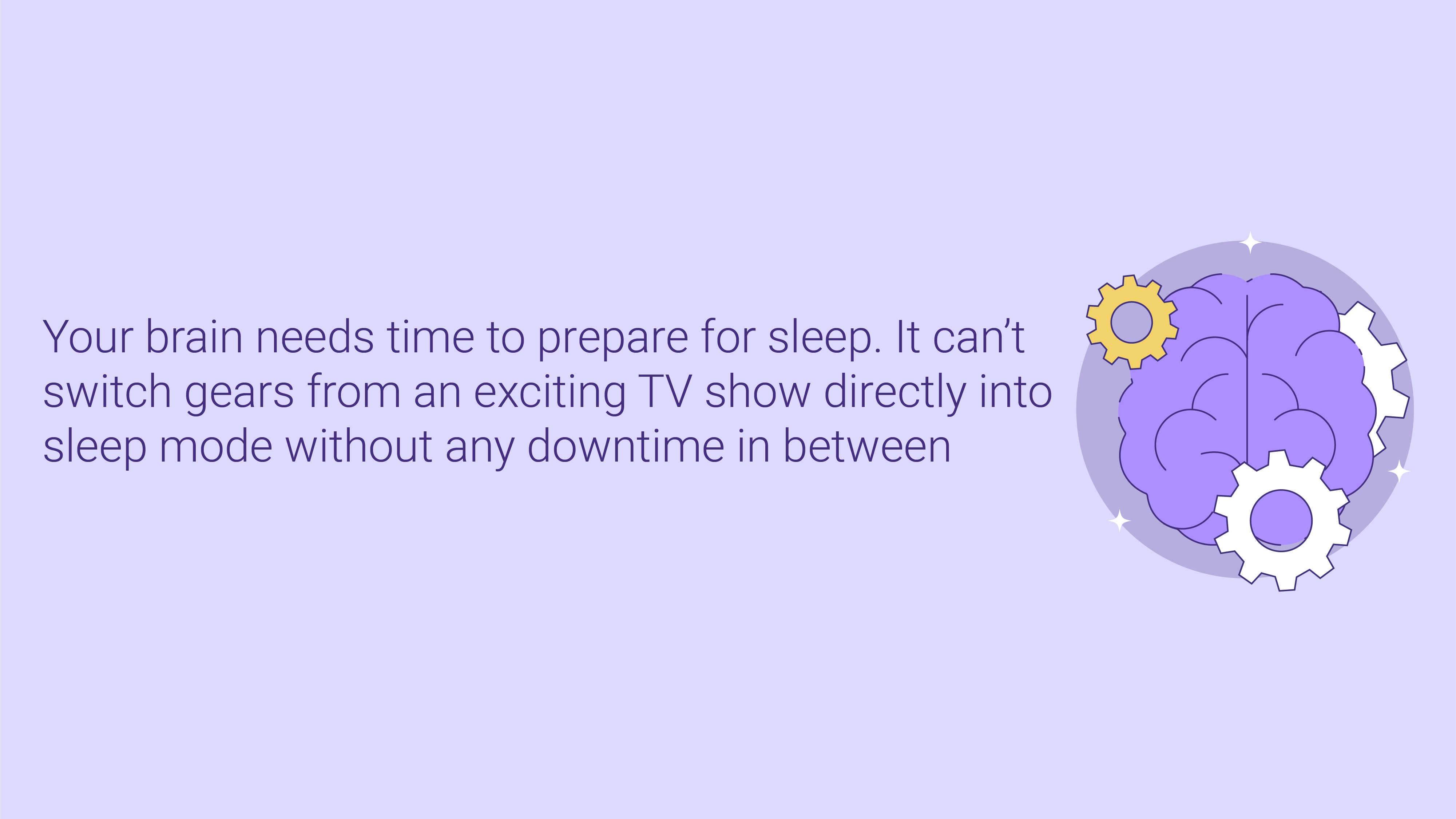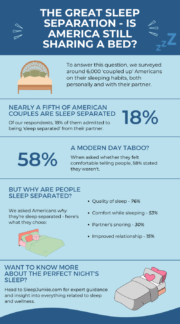
Why Do People Talk in Their Sleep?
- Sleep talking, or somniloquy, can be caused by various factors including genetic predisposition, stress, anxiety, sleep deprivation, and other sleep disorders, although it is generally not harmful.
- Creating a consistent sleep schedule, maintaining good sleep hygiene, and setting a bedtime routine can help reduce sleep talking and improve overall sleep quality and well-being.
- Sleep talking can be associated with other sleep disorders such as sleep apnea, night terrors, sleepwalking, and REM sleep behavior disorder, which may require medical attention for proper management and treatment.
Have you ever been told that you talk in your sleep? If so, you might be wondering why this happens and what you might do to prevent it. Sleep talking, also known as somniloquy, is considered a sleep disorder, although it’s not medically harmful.
Why people talk in their sleep is multifactorial. The reasons range from genetic predisposition to acute daily stress and anxiety. Although it’s not medically threatening, it can create problems when sharing a mattress. It can also be a sign of more problematic sleep issues like sleep apnea, a REM sleep disorder, or other psychiatric disorders.
Defining Sleep Talking
Sleep talking is exactly what it sounds like: talking in your sleep. It’s a type of parasomnia — or abnormal occurrence while sleeping — that can take place during rapid eye movement (REM sleep) or NREM sleep. It can range from mild to severe. According to the National Sleep Foundation, mild sleep talking is defined as infrequent, usually only once or twice a month. Moderate sleep talking occurs once a week and can be loud enough to wake another person up. Severe sleep talking occurs nightly and consistently interrupts the sleep of another person.
Sleep talking can range from mumbling gibberish to having one side of an entire conversation. Generally speaking, the more comprehensible the talking, the earlier the stage of sleep. In stages 1 and 2 of sleep, you’re more likely to understand the words and phrases coming from the sleep talker. While in deeper sleep stages, it’s more likely to be gibberish or even moaning.
If you’re a sleep talker who’s concerned about what you might say in your sleep, don’t worry. Modern sleep science says that sleep talking is totally irrelevant to waking life. Often times, the talker’s voice even sounds different from waking life. US Federal law goes so far as to state that you can’t be held accountable for anything you say in your sleep in a court of law.
What Causes You to Talk in Your Sleep?
The National Sleep Foundation gives many reasons why people talk in their sleep beyond a genetic predisposition. The list includes:
- Emotional stress
- Depression
- Sleep deprivation
- Fever
- Daytime drowsiness
Addressing these factors will very likely help you sleep better, whether you talk in your sleep or not. Finding ways to deal with daily stressors in a productive way, such as journaling, exercising, or talking to a friend, is important not only for reducing the likelihood of sleep talking but for your overall health and wellbeing.
Sleep and depression are linked in a feedback loop. Lack of sleep exacerbates depression, and depression can make it hard to get a good night’s sleep. So, if you think it’s depression hindering your sleep, consider speaking to a professional who can give you customized tips on how to get better rest.
How Do You Stop Talking in Your Sleep?
Since talking in your sleep is sometimes a sign of a more significant health issue, it’s easy to see why people want to stop chatting the night away. The first step? Focus on your sleep hygiene.
Sleep hygiene is a collection of behaviors that best prepare you for sleep each night. It’s important for everyone, even if you don’t talk in your sleep. But for sleep talkers, it’s critical, especially if you share a mattress.
Set a Consistent Sleep Schedule
Setting a consistent sleep schedule is one of the first suggestions just about any sleep specialist will make. Sleeping and rising consistently at the same time each day helps regulate your circadian rhythm, allowing you to naturally drift into restful sleep and help keep the talking at bay.
Avoid Eating Too Close to Bedtime
Eating a heavy meal can impact your sleep quality and create the conditions for sleep talking: restless sleep due to digestive activity. Try to limit snacking or eating anything heavy close to bedtime, and eat dinner at least a few hours before bed. If you do find yourself eating later in the day, choose from foods that help you sleep better.
Wind Down for at Least an Hour
Your brain needs time to prepare for sleep. It can’t switch gears from an exciting TV show directly into sleep mode without any downtime in between. The same goes for working late. Give yourself at least an hour away from any screens before bed.
Screens give off blue light that mimics the rising sun and can disrupt your natural melatonin production. If you have to use screens late into the night, consider using blue-blocking screen glasses or an app that removes the blue light from your phone. Some smartphones already have this feature built into the settings.
Create a Bedtime Routine
Routine is key for anyone with sleep disruptions or disorders. From light insomnia to sleep talking, getting your body and mind ready for bed by doing the same routine each night can have a huge impact because it helps the body recognize that it’s bedtime.
Start this routine an hour before bed so that you begin to train your brain that when these things happen, sleep follows shortly after. You can set routines like brushing your teeth, washing your face, taking a bath, using a foam roller, or doing some deep breathing. Pick the activities that will work for you to relax your body and mind before bed and commit to doing them every night. Experts say that good sleep hygiene leads to better rest, so here’s how you can use it to mitigate sleep talking.

Associated Sleep Problems
Although waking yourself up is the only risk to sleep talking itself, other more serious sleep problems could arise. While talking in your sleep doesn’t cause these other issues, it can be a symptom of a more serious sleep disorder. If you think you might have some of these other sleep problems, consider seeing a sleep specialist or other medical professional.
Sleep Apnea
There are three types of sleep apnea, all of which involve temporary breathing cessation.
In obstructive sleep apnea, muscles of the throat relax and block the airway. In central sleep apnea, the brain neglects to send signals to control breathing, and in complex, both can occur simultaneously. Sleep apnea can severely disrupt sleep and lead to cardiovascular issues. If you snore loudly or wake feeling exhausted after a full night’s sleep, you might want to get tested for sleep apnea.
Night Terrors
Night terrors, also called sleep terrors, occur mostly in children under 12 years old, but can happen to adults as well. They occur in the deepest stage of sleep (stage 4, non-REM) but can jolt the sleeper partially awake in a fit of screaming, crying, or panic. Night terrors are different from nightmares, in that they aren’t the result of dreaming. Dreaming doesn’t happen in the stages of sleep in which night terrors occur, it happens in REM sleep.
Sufferers of night terrors may sit up in bed with their eyes open but still be partially asleep and inconsolable. Causes of night terrors overlap with causes of sleep talking. If they persist or affect cognition and energy levels during waking life, talk to a sleep specialist.
Sleepwalking
Sleepwalking is also more common for children than adults. It affects roughly 1-15% of the population and is often the result of sleep deprivation or the use of sleep aids. Sleepwalking is an umbrella term for lots of various activities that a person can enact while in the deep stages of sleep (non-REM sleep). This can include making and eating food, leaving the house, or even driving a car for a long distance.
Sleepwalking is considered a sleep disorder, but there’s no specific treatment that works for everyone. The best way to combat sleepwalking is to practice good sleep hygiene. In some cases, the use of antidepressants or sedative-hypnotics helps reduce the occurrence of sleepwalking.
REM Sleep Behavior Disorder
During healthy REM sleep, your muscles are paralyzed so you can’t move. But when someone has REM sleep behavior disorder, their muscles are active and able to flail around. This can be a pretty dangerous scenario for everyone involved. In some cases, people with this medical condition have severely injured or even killed people while sleeping. It’s incredibly important to see a sleep specialist if you experience any of the following markers of this disorder include:
- Vocal and physical outbursts in the night
- Violent physical flailing
- Jumping out of bed quickly, usually in response to incredibly vivid and unpleasant dreams
Are You Ready to Sleep Better?
Taking care of yourself during your waking hours will go a long way when it comes to getting quality sleep. Practice good sleep hygiene and pay attention if someone tells you that you’re talking in the night.
If you’re experiencing any of the other associated sleep problems in addition to talking, it could be a sign of a more serious sleep disorder. Consult your physician so you can take steps toward a quieter night’s rest.


